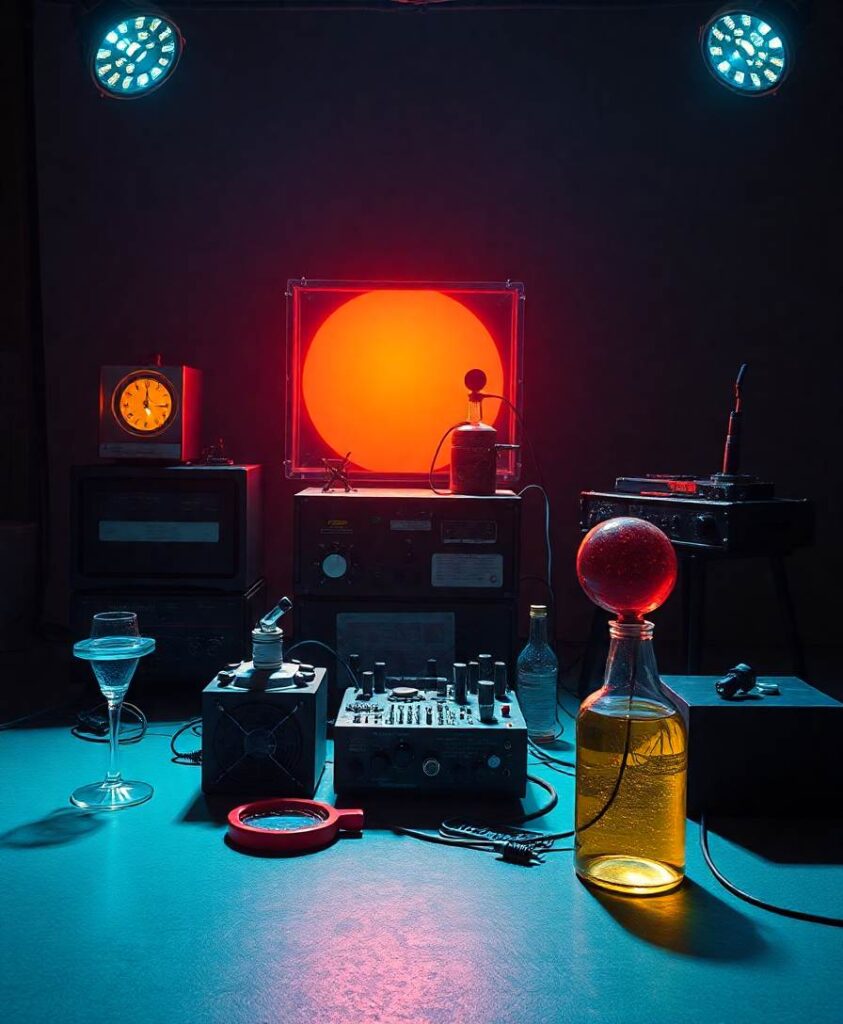Imagine a world where aging isn’t an inevitable decline, but a process we can potentially slow and reshape. Emerging research from Emory University suggests that psilocin—the active compound in psychedelic mushrooms—might hold remarkable keys to cellular rejuvenation that could transform our understanding of longevity.
Our bodies carry incredible regenerative potential, and this groundbreaking study reveals how specific molecular compounds could activate hidden mechanisms of cellular repair. By interacting with our biological machinery in sophisticated ways, psilocin demonstrates an extraordinary capacity to extend cellular lifespan and support healthier aging processes. This isn’t about creating miracles, but understanding the intricate biochemical pathways that govern how we age.
Biomedical research continually challenges our assumptions about human potential, and this investigation into psychedelic compounds represents an exciting frontier. While we’re far from declaring a definitive anti-aging solution, these findings invite us to reimagine aging as a dynamic, potentially manageable biological process. What might our lives look like if we could maintain cellular vitality and resilience throughout our later years? The research beckons us to stay curious, keep exploring, and remain open to transformative scientific discoveries.
Could Psychedelic Compounds Like Psilocin Really Slow Down Human Aging?
When a breakthrough from Emory University signals that psilocin,the active ingredient in psychedelic mushrooms,can delay cellular aging, it’s not just another headline about mind-bending substances. Instead, it’s an electrifying glimpse into a future where our understanding of aging, health span, and longevity could be radically transformed by future-proofing tech rooted in neurochemistry. For decades, the pursuit of longevity has been a mosaic of diet, exercise, and emerging biotech. Now, a discovery that links psychedelic compounds to cellular rejuvenation could rewrite the rulebook,potentially paving the way for therapies that help us age not just more slowly, but with vitality and resilience intact.
The core of this research isn’t just about a “silver bullet” for aging. It’s about unlocking how certain compounds,like psilocin,interact with our cellular machinery in ways that *delay* the biological clock. The findings showed that human cells treated with psilocin lived over 50% longer than untreated counterparts. That’s a staggering increase in cellular lifespan, hinting at a future where aging could be slowed at the very level of our DNA, mitochondria, and cellular repair systems.
But the excitement doesn’t stop at human cells. The animal studies offer a compelling glimpse into a future where aging might be more than just a gradual decline. Mice treated with psilocybin, the psychedelic substance derived from psilocin, not only experienced a 30% extension in lifespan but also appeared visibly healthier,looking more youthful and aging better than their untreated counterparts. These findings suggest that psychedelic compounds might support our bodies’ innate ability to repair, regenerate, and maintain vitality well into later years.
What does this mean for the future of aging and longevity tech?
The implications are profound. Imagine a future where targeted compounds,initially inspired by psychedelics,become part of a broader toolkit to combat age-related decline. They could complement existing anti-aging strategies, from gene editing to regenerative medicine, creating a multi-layered approach to extending health span. The idea isn’t just about living longer; it’s about *living better*,with fewer years of frailty and more years of dynamic, cognitively sharp life.
This research also underscores a broader movement within longevity science: the search for compounds that modulate cellular processes like autophagy, mitochondrial health, and epigenetic stability. Psychedelic compounds might be uniquely positioned here, given their ability to influence neural plasticity and cellular signaling pathways. What’s fascinating is that these substances,long stigmatized and misunderstood,are now being re-examined through rigorous science as potential tools for healthspan extension.
While we’re still in the early days, the potential for future-proofing human health with such compounds is tantalizing. It’s a reminder that the next big leap in longevity could come from molecules that, until recently, were confined to the realms of consciousness expansion. The horizon teems with possibilities: personalized regenerative therapies that tap into the biology of psychedelics, designed to keep us thriving at any age.
The real challenge lies ahead: translating these cellular and animal results into safe, effective treatments for humans. But the trajectory is clear,scientists are now exploring how to harness these compounds responsibly, tapping into their cellular rejuvenation powers without the psychedelic experience. This could lead to a future where aging is not an inevitable decline but a manageable, perhaps even reversible, aspect of our biology.
As we stand on this cusp of a new era, the potential to rewire aging with future-proof tech like psilocin-based therapies embodies the ultimate human aspiration: to extend not just lifespan, but *healthspan*, with vitality, curiosity, and resilience intact. This is the frontier where neuroscience, longevity science, and innovative biotech converge,fueled by the curiosity to unlock our fullest potential at every stage of life.
Learn More: Magic mushrooms rewind aging in mice,could they do the same for humans?
Abstract: A surprising discovery from Emory University shows that psilocin, the active metabolite of psychedelic mushrooms, can delay cellular aging and extend lifespan. Human cells lived over 50% longer, and mice treated with psilocybin not only lived 30% longer but also looked and aged better.
Link: Read Full Article (External Site)




